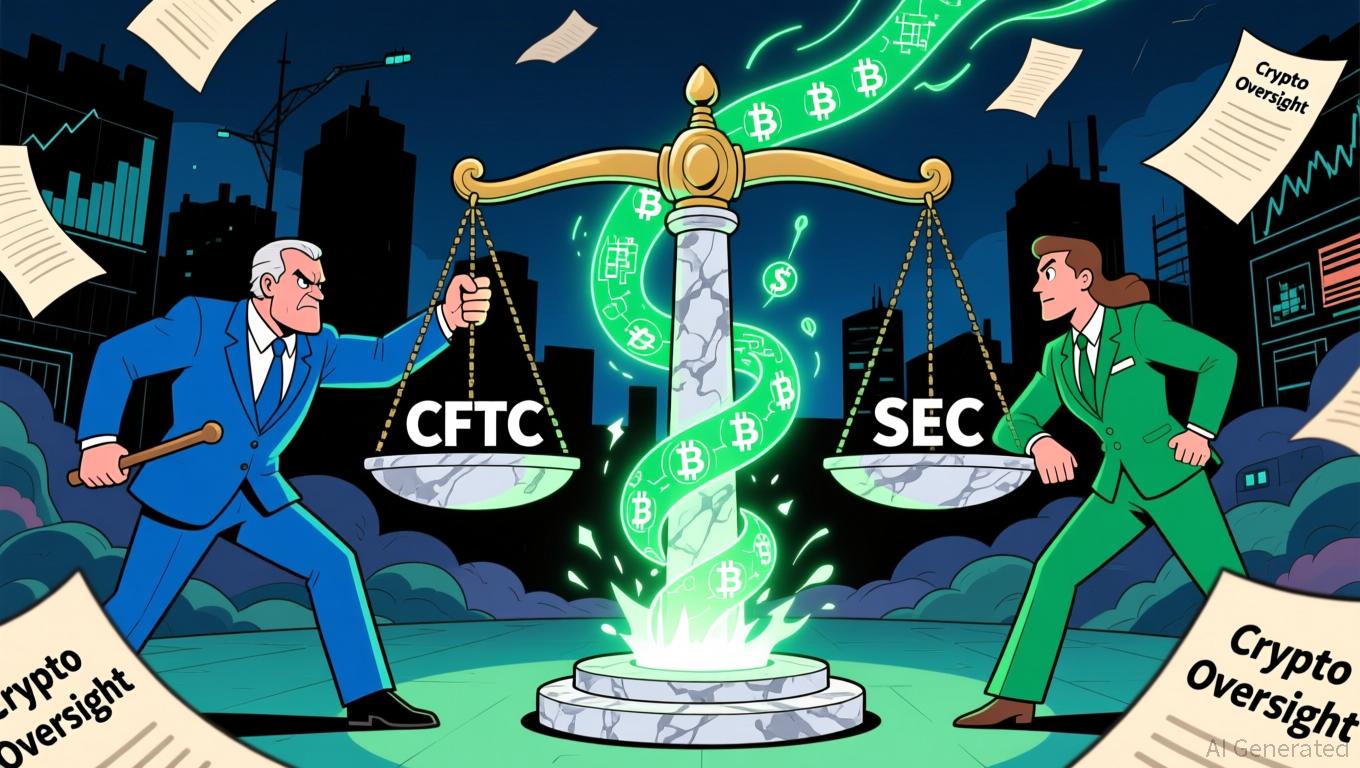Bitcoin News Update: SEC Allows Tokens to Transition from Securities to Commodities as Decentralization Advances
- SEC introduces a four-tier digital asset classification framework (securities, commodities, collectibles, tools) using the Howey test to determine securities status. - The taxonomy aims to reduce market uncertainty by clarifying regulatory boundaries, enabling tokens to transition from securities to commodities as projects decentralize. - Regulatory jurisdiction debates persist between SEC and CFTC, with proposed legislation suggesting shifts in oversight for digital commodities and hybrid tokens. - Fram
The U.S. Securities and Exchange Commission (SEC) has introduced a comprehensive system for categorizing digital assets, aiming to clarify how cryptocurrencies are regulated and reduce ambiguity for those involved in the market. SEC Chair Paul Atkins revealed this framework, known as the token taxonomy, during a speech at the Federal Reserve Bank of Philadelphia on November 12, 2025. The taxonomy sorts crypto assets into four groups: securities, commodities, collectibles, and utility tokens. This move, which is part of Project Crypto,
According to this classification, digital commodities or network tokens that mainly serve a functional purpose within blockchain ecosystems

This proposal has ignited discussions about which agencies should have regulatory authority. While the SEC's plan centers on defining securities, the CFTC's responsibility for overseeing commodities — including possible spot markets for digital currencies — remains a contentious issue.
Atkins’ announcement comes after extensive public consultation, including more than 100 meetings and written submissions from various stakeholders. The SEC intends to finalize regulations that define "investment contracts" and introduce a process for certifying decentralization,
The effect of this framework on leading cryptocurrencies such as
Disclaimer: The content of this article solely reflects the author's opinion and does not represent the platform in any capacity. This article is not intended to serve as a reference for making investment decisions.
You may also like
Anthropic Claims Cyberattack Involved AI, Experts Express Doubts
- Anthropic claims Chinese state hackers used AI to automate 80-90% of a cyberattack targeting 30 global entities via a "jailbroken" Claude AI model. - The AI-generated exploit code, bypassed safeguards by fragmenting requests, and executed reconnaissance at unprecedented speed, raising concerns about AI's dual-use potential in cyber warfare. - Experts question the validity of Anthropic's claims while acknowledging automated attacks could democratize cyber warfare, prompting calls for stronger AI-driven de

AAVE Drops 13.95% Over 7 Days Amid Strategic Changes Triggered by Euro Stablecoin Regulatory Approval
- Aave becomes first DeFi protocol to secure EU MiCA regulatory approval for euro stablecoin operations across 27 EEA states. - The Irish subsidiary Push Virtual Assets Ireland now issues compliant euro stablecoins, addressing ECB concerns about USD-dominance in crypto markets. - Aave's zero-fee Push service generated $542M in 24-hour trading volume, contrasting with typical 1-3% fees on centralized exchanges. - With $22.8B in borrowed assets, the platform's regulatory milestone is expected to accelerate a
SEI Faces a Turning Point: Will It Be a Death Cross or a Golden Cross?
- SEI , Sei's native token, shows early recovery signs amid crypto market slump, with technical indicators suggesting potential breakout from prolonged consolidation. - Despite 2.83% 24-hour decline to $0.17, increased $114.1M trading volume and TD Sequential buy signals highlight critical inflection point potential. - Market analysis identifies $0.1756 support and $0.1776 resistance levels, with death cross risks below $0.1745 and golden cross potential above $0.1787. - Fear/greed index at 25 reflects ext

Bitcoin News Update: CFTC's Broader Role in Crypto Regulation Ignites Discussion on Clearer Rules
- U.S. lawmakers propose expanding CFTC's crypto oversight via a bill reclassifying spot trading, diverging from SEC's enforcement approach. - Harvard University invests $443M in BlackRock's IBIT ETF, reflecting institutional confidence in crypto as a legitimate asset class. - DeFi projects like Mutuum Finance raise $18.7M in presales, leveraging regulatory momentum and transparent on-chain credit systems. - RockToken's infrastructure-backed crypto contracts attract long-term investors with structured yiel
